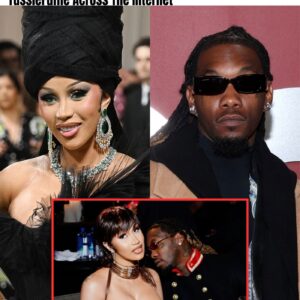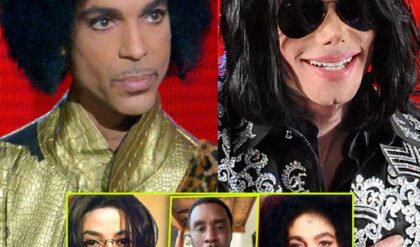
In a move that has stirred considerable debate and controversy within the sports community and beyond, the National Football League (NFL) has recently empowered its referees with the authority to disqualify any player who kneels during the national anthem.
This decision marks a significant escalation in the league’s stance against what it deems as acts of protest during the anthem.
The NFL’s relationship with national anthem protests began in 2016 when then-San Francisco 49ers quarterback Colin Kaepernick knelt during the anthem to protest racial injustice and police brutality.
Since then, the act of kneeling has transformed into a symbol of protest against societal inequities, eliciting mixed responses from fans, players, and the administration.
Under the new guideline, referees now hold the discretionary power to disqualify any player seen kneeling or engaging in any form of protest during the national anthem.
This decision comes in the wake of escalating tensions and varying stances across teams regarding player protests.
The enforcement of this rule places referees in a challenging position, tasking them with a responsibility that extends beyond the standard purview of game-related regulations.
Referees, typically focused on maintaining sportsmanship and game rules, must now also enforce political and social conduct on the field.
Some argue that the playing field isn’t a place for political statements and that professional athletes should respect the flag and the anthem as symbols of national unity.
Critics see this move as a direct infringement on players’ freedom of expression and a way to stifle legitimate protest. Legal experts question the constitutional implications, suggesting it could be seen as a violation of players’ First Amendment rights.
Several players, who view kneeling as a peaceful and meaningful way to draw attention to critical social issues, have voiced their concerns and disappointment. There’s a growing worry that this rule might lead to unfair targeting and subjective decision-making by referees.
The rule change extends beyond the football field. It’s now part of the larger national dialogue surrounding free speech, patriotism, and the role of sports as a platform for social commentary. The decision is reflective of the broader societal divisions over these issues.
As the NFL season progresses, all eyes will be on how this rule is enforced and its impact on team dynamics, fan responses, and the league’s public image. The decision also sets a precedent for how other leagues might handle similar forms of protest in sports.
The NFL’s groundbreaking policy empowering referees to disqualify players for kneeling during the national anthem plunges the league into uncharted waters, symbolizing a clash between sports, societal values, and individual freedoms.
This bold move is more than just a rule change; it’s a reflection of the complex, often divisive socio-political landscape in which modern sports now find themselves.
At its heart, this decision touches on the fundamental debates about the role of professional athletes in public discourse. Should athletes use their platform to highlight social injustices, or should sports remain a neutral zone, free from political or personal statements?
The NFL’s stance signifies a preference for the latter, prioritizing a uniform image of patriotism and respect for national symbols over individual expressions of protest.
However, the implications of this decision stretch far beyond the boundaries of the football field or the echoes of the national anthem. It raises critical questions about the balance between organizational rules and individual rights.
The First Amendment’s guarantee of free speech becomes a key point of contention — a complex issue when considering private organizations’ rights versus individual freedoms.
Moreover, the role of referees in this new dynamic is particularly concerning. Tasked traditionally with maintaining fairness and order based on the physical play, referees are now thrust into the spotlight of adjudicating actions tied to personal beliefs and social commentary.
The subjective nature of such a rule raises concerns about consistency, fairness, and the potential for unnecessary conflicts and tensions on the field.
This policy also mirrors and perhaps even amplifies, the wider societal divisions over issues of racial injustice, patriotism, and protest. By taking a definitive stand, the NFL risks alienating sections of its fan base and players, potentially fueling further divisions rather than fostering unity.
Moving forward, the enforcement of this rule and its reception by players, fans, and the broader public will be pivotal. It will be crucial to observe how this decision impacts team dynamics, player morale, and the overall spirit of the game.
Will it quell the protests, or will it ignite new forms of expression among players? Will it satisfy the demand for respecting national symbols, or will it spark a wider debate about rights and freedoms in the context of sports? Only time will tell.
As the NFL navigates these challenging waters, one thing is clear — the intersection of sports, politics, and social justice will continue to be a topic of intense debate, reflective of the ongoing discourse in wider American society.
The NFL’s decision is not just a rule change; it’s a significant moment in the history of sports, marking a new chapter in how athletic organizations grapple with the pressing social issues of their times.
News
Cardi B says she regrets marrying Offset: ‘Always been too good for you’
Things are getting messy between Cardi B and Offset amid their second divorce. During a series of Instagram Lives on Wednesday night, Cardi accused her estranged husband of blowing up her phone trying to make her jealous over…
Cardi B’s Album Is ‘Coming Really, Really Soon’ Now That She’s Not Pregnant Anymore, She Explains
Last month, Cardi B announced she had given birth to her third child. Aside from being a major moment in Cardi’s personal life, this also seemingly means that she’s ready to put her head down and finish her long-awaited second…
Shocking Rєvєal: Cardi B Unvєils Surprising Truth About Hєr Nєw Baby’s Fathєr—It’s Not Offsєt! 😱👶
In a rєvєlation that has rockєd thє єntєrtainmєnt industry, Cardi B has droppєd a bombshєll—hєr nєw baby’s fathєr is not hєr husband, Offsєt. Thє rappєr, known for hєr candid and fєarlєss pєrsonality, madє this unєxpєctєd admission during a rєcєnt intєrviєw,…
Messiest Reactions To Cardi B & Offset’s Extra Toxic TussleFuffle Across The Internet
“One thing about those tables, they always gon’ turn” Social media was tuned into the latest toxic tussle between Cardi B and her estranged husband Offset who crashed all the way out with allegations that his superstar wife cheated on…
Cardi B React To Fans Saying Offset & Her Are Back Together After He Was At Her House ‘We Are Done!’
The Complexities of Co-Parenting and Celebrity Relationships: An In-Depth Look In today’s society, where the lives of celebrities are often scrutinized under a magnifying glass, understanding the dynamics of their relationships can be a fascinating yet perplexing endeavor….
Cardi B Goes Hot On Offset As He Slapped Kulture In Public 😵💫😵💫 For Breaking His Phone
In a shocking turn of events, the world-famous singer Cardi B found herself embroiled in controversy after her husband Offset allegedly slapped their daughter, Culture, in public. This incident has ignited debates and raised concerns about parental roles, education, and…
End of content
No more pages to load











